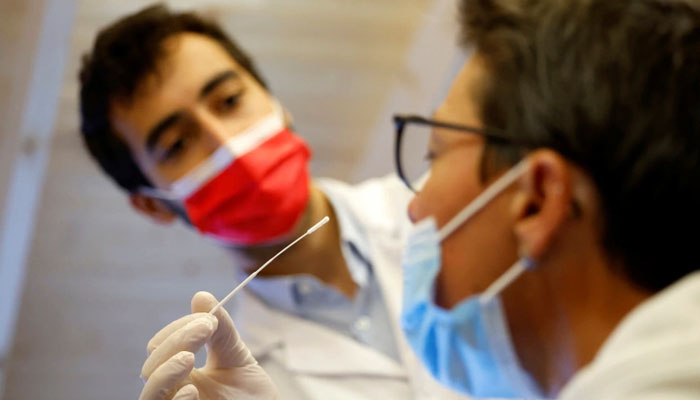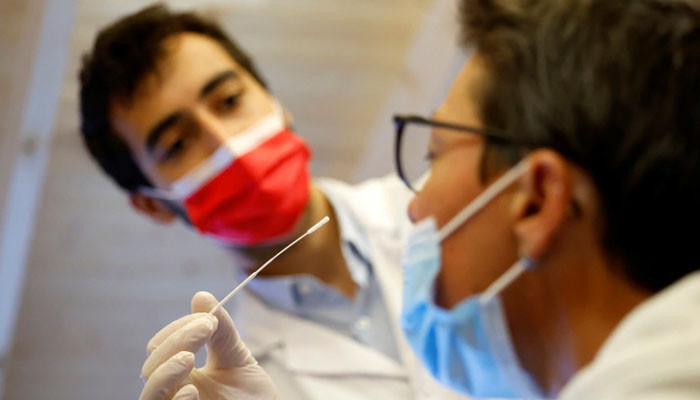
The presence of XBB.1.5 sub-variant of Corona Virus which is spreading very fast has been confirmed in Pakistan.
The experts of Aga Khan University have confirmed that the sub-variant XBB.1.5 of the corona virus, which is spreading very fast in the world, has reached Pakistan, but the rate of its spread here is very low.
Experts from Aga Khan University told The News that they have detected the presence of sub-variant XBB.1.5 of the corona virus in Pakistan through genome sequencing.
According to the World Health Organization, this sub-variant is currently causing the spread of Corona in most countries of the world.
Speaking to The News, Dr. Faisal Mehmood, an infectious disease specialist of Aga Khan University, said that the presence of XBB.1.5 sub-variant in Pakistan is not surprising because it is only possible to stop this virus that is spreading very rapidly in the world. No matter.
Talking about the reasons for the very few cases of this virus in Pakistan, he said that the immunity of the Pakistani people against the corona virus is very high, one of the reasons being that they are repeatedly infected with this virus, while on the other hand, in Pakistan Vaccination rate is very high.
On the other hand, Corona tests are also being reduced very much in Pakistan due to which the cases are coming out very less.
Dr. Rana Jawad Asghar, another infectious disease expert, said that XBB.1.5 has so far proved to be the fastest-spreading virus, affecting even those who have been fully vaccinated.
He said that the testing rate of Corona in Pakistan is very low and only those people who have to travel abroad are getting tested and usually the rate of Corona positive is very low among these people.
On the other hand, health experts say that a large number of people in Karachi are going to doctors with complaints of cold and fever, but since their illness is not of a serious nature, most people avoid getting tested for Corona. have been.
setTimeout(function(){
!function(f,b,e,v,n,t,s)
{if(f.fbq)return;n=f.fbq=function(){n.callMethod?
n.callMethod.apply(n,arguments):n.queue.push(arguments)};
if(!f._fbq)f._fbq=n;n.push=n;n.loaded=!0;n.version=’2.0′;
n.queue=[];t=b.createElement(e);t.async=!0;
t.src=v;s=b.getElementsByTagName(e)[0];
s.parentNode.insertBefore(t,s)}(window,document,’script’,
‘https://connect.facebook.net/en_US/fbevents.js’);
fbq(‘init’, ‘836181349842357’);
fbq(‘track’, ‘PageView’);
}, 6000);
/*setTimeout(function(){
(function (d, s, id) {
var js, fjs = d.getElementsByTagName(s)[0];
if (d.getElementById(id)) return;
js = d.createElement(s);
js.id = id;
js.src = “//connect.facebook.net/en_US/sdk.js#xfbml=1&version=v2.11&appId=580305968816694”;
fjs.parentNode.insertBefore(js, fjs);
}(document, ‘script’, ‘facebook-jssdk’));
}, 4000);*/



